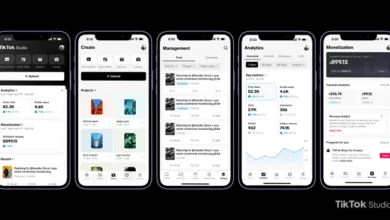Remedy Announces Control Multiplayer Spin-Off Game FBC: Firebreak


by
William D’Angelo
, posted 5 hours ago / 442 Views
Remedy Entertainment has announced FBC: Firebreak, a three-player co-operative first-person shooter set in the Federal Bureau of Control from the game Control. It was previously known as Project Condor.
The game will launch for the PlayStation 5, Xbox Series X|S, PC via Steam and Epic Games Store, Xbox Game Pass, and PlayStation Plus Game Catalog in 2025.
View the announcement trailer below:
Read details on the game via Xbox Wire below:
“FBC: Firebreak is not Control DLC and it’s definitely not a Control sequel.”
Game Director Mike Kayatta is forthright when it comes to his new game.
“We’re actively avoiding coming even close to feeling like either of those things. I guess you could say that it’s a spin-off, but in the most positive sense of the word. It’s not designed to be some kind of lesser, bite-sized Control. FBC: Firebreak is its own, fully formed thing.”
The desire to educate people on what this game represents comes with good reason. With a gameplay world premiere in today’s Xbox Partner Preview broadcast, FBC: Firebreak isn’t just new for the Control series, or the wider Remedy Connected Universe – it’s new for Remedy as a whole.
Almost three decades after releasing its first game, this is the legendary studio’s first ever multiplayer project, not to mention a first return to the world spun up around Control (give or take some teases in Alan Wake 2). Based on the studio’s history with single player, narrative-driven experiences, it’s tempting to talk about what it’s not – but it’s more interesting to talk about what it will be.
In the world premiere gameplay trailer at Xbox Partner Preview, we finally got a sense of that:
“FBC: Firebreak is a three-player co-operative first-person shooter,” Communications Director, Thomas Puha tells me. “It’s going to be easy to get into, a game that you can enjoy with your friends and tackle multiple hectic co-op missions showcasing that Remedy creativity.
“We have always done single player games at Remedy, and rest assured, we have more single player games in development, and they will be awesome, but for a long time we have wanted to make a PvE multiplayer game. There are loads of us here who love multiplayer besides single player. We don’t want to be doing the same types of games all the time; it’s good to take on new challenges.”
You’ll take on the roles of fearless first responders in the Federal Bureau of Control, sent to fend off paranatural threats in the dark heart of its shifting, eldritch headquarters, The Oldest House. This might have the shape of other PvE multiplayer shooters, but even from the first trailer you can tell there’s a distinct Remedy touch to the enemies, environments, and especially equipment.
Remedy isn’t offering too much detail on that last part just yet, but the trailer shows us some very unexpected weaponry along the way:
“What I can say is that the Firebreak crew has been cleared to carry ‘paranatural augments,’ which are Altered Items engineered into tool attachments,” explains Puha. “Like the Garden Gnome you saw in the trailer. These are more or less our take on ‘ultimates’ and are not to be taken lightly. I like to think of them as a jaguar in a box [laughs]. You carry the box, you point it at something, you open the box, and you just kind of hope the jaguar doesn’t turn around and eat you or your friends instead.”
It’s a very Remedy-flavored take on a classic genre and, in talking with the team, it’s clear that a huge part of development on FBC: Firebreak has been in balancing doing something new for the studio, while never losing sight of what’s earned Remedy its many fans. A key part of that has been in how the team was put together to make the game – new talent was brought in, some with specific experience in the realm of multiplayer, but there’s a core of seasoned Remedy creators built in.
“Every game you make is a challenge and requires a bit of recalibration,” says Puha. “With FBC: Firebreak, obviously as an online co-op shooter, it requires a very different way of thinking on many fronts. The way we build the levels, approach the gameplay, how we recalibrate the tech and backend so we can quickly react to potential issues once the game is live, matchmaking, cadence of patching, community management, etc. There’s a lot to figure out, it’s definitely challenging.
“But it’s really exciting to see how some of our – and I say this in a loving way – grizzled Remedy veterans are excitedly working on Firebreak and doing everything from coding to level and gameplay design, whatever needs to be done. It’s a mean and lean dev team going fast.”
As Puha alludes to, another key point of difference to past Remedy games is that FBC: Firebreak is designed to evolve over time, but in a considered way:
“FBC: Firebreak should be easy to get into and quickly understandable, not feel like a second job or that you have to spend an hour setting up your loadouts etc. before you get into a session. This is not that game,” Puha makes clear. “It’s a pick-up-and-play experience [about] having fun with your friends when you have the time. That’s not to say that FBC: Firebreak doesn’t have deep player progression and things to unlock, it does, but this isn’t about logging in every day for some loot or fear of missing out on materials.
“I would not describe it as a ‘game as a service’, but yes, post-launch, we will be releasing a steady supply of new content for players to get excited about, keep the game fresh, engage with the community and give a reason to come back.”
And this is where one of Remedy’s historical strengths does play a part – storytelling. While it’s definitely not a sequel, Kayatta says FBC: Firebreak does take place after the events of Control, and it’s offering a new way of delivering stories from that world – stories that will keep being told after launch. You don’t need to have played Control to understand what’s going on but, if you have, there’s going to be a lot here for you.
“I fell in love with Control as a player first, and what stuck with me after the final credits rolled wasn’t really its story, but its world,” says Kayatta. “Stories live on defined timelines—this happened, then that happened, then that—but worlds are conceptual. Immersive. A canvas for a million stories. And that’s what multiplayer games should be about: not our one story, but your millions of stories unique to your experiences in the game.”
“For the people who are keeping up with the single-player journey, we wanted to make sure that FBC: Firebreak was a legitimate and impactful part of that history and lore. The narrative style you’ve seen in our previous games just wasn’t ever going to work here, for this kind of game. When you think about these differences in FBC: Firebreak’s gameplay – world over story, multiplayer over single-player, voice-chatting with your teammates, action over exploration and so on – you can probably see why it was important that we made FBC: Firebreak a stand-alone experience.
“That said, you will see more of Control’s world. More of the Federal Bureau of Control. Meet more of the people who work there. Explore more of the Oldest House. Run into more weird stuff. And importantly, experience this world, old and new, from a completely different perspective.”
That different perspective is clear from the trailer. Where Control was often odd, and sometimes very funny, it was presented with a very straight face – I ask if FBC: Firebreak was designed to have a lighter tone.
“FBC: Firebreak is a game about people trapped in an absurd world fighting for their lives. What we may interpret as ‘funny’ from our couch, like seeing a bunch of murderous sticky notes evolve consciousness after reproducing like bunnies, would actually be really frightening to the character living it,” replies Kayatta. “And that’s always been the magic of Control, that juxtaposition of unexpected weirdness and earnest stakes.
“So, I wouldn’t say that FBC: Firebreak is necessarily ‘lighter’; when looking for the tone, it was important to me that we found a way to keep those same, fundamental ingredients of ‘absurd’ and ‘serious’, but then play with the mix in a way that works for Firebreak—for the specific situation our characters find themselves in but also for the specific type of gameplay we’re building.”
The more I learn about Firebreak the more it feels as though this is less of an experiment than a natural next step. What could have been seen as a side-project is actually more of a way for Remedy to continue pushing boundaries – the studio has always prioritized stories, action, and unusual presentation. Firebreak might look different, but it stands as part of that same tradition.
I ask if this feels like a true evolution for the studio, a moment where the idea of what a Remedy game can be has expanded: “To be honest, not really. Or maybe we are too busy to realize that,” laughs Puha.
“Instead, what I would say is that an evolution has been felt in the last four years or so, ever since we began developing multiple games in parallel. Remedy has shipped a game or a port of one of our games every year since 2019, which I think is quite an incredible feat for a company of less than 400 people.
“The launch of FBC: Firebreak is going to be a big shift as it’s an online game, we’ll support it post-launch…”
And in the moment, he seemingly reconsiders.
“Maybe it is an evolution right now after all.”
A life-long and avid gamer, William D’Angelo was first introduced to VGChartz in 2007. After years of supporting the site, he was brought on in 2010 as a junior analyst, working his way up to lead analyst in 2012 and taking over the hardware estimates in 2017. He has expanded his involvement in the gaming community by producing content on his own YouTube channel and Twitch channel. You can contact the author on Twitter @TrunksWD.




